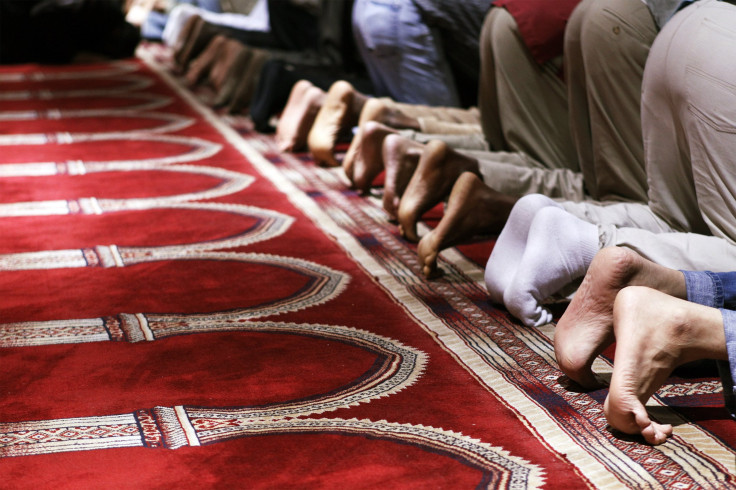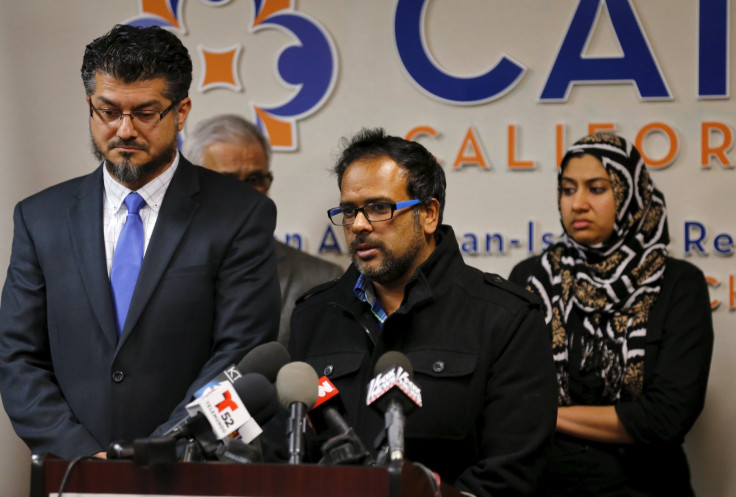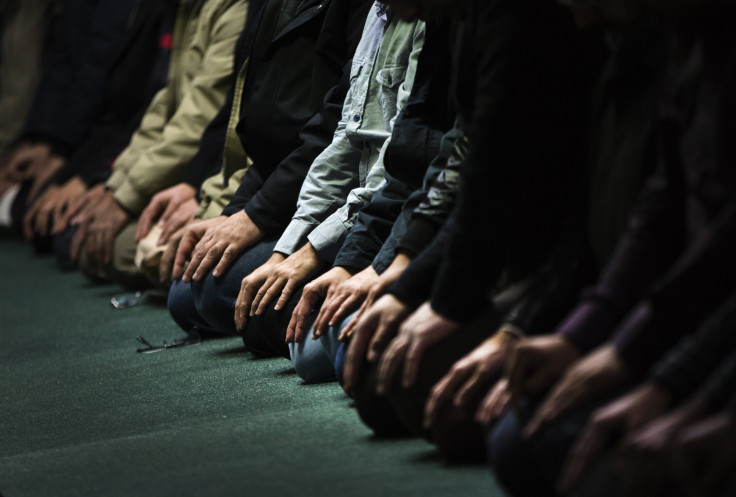Are Mosques Conduits For Extremism? How Muslim Leaders Are Fighting Terrorism

Yasir Qadhi, one of America’s most popular Muslim theologians, has traveled the world to wage war on extremist violence. His speeches on why terrorism is antithetical to Islamic values have gone viral online, he says he's able to talk down fiery youth and help redirect their anger, and he also makes an effort to address jihad -- or the "J" word as it's been called -- to clarify misconceptions Muslims might have. His anti-hate message has become so widespread that earlier this year the Islamic State group called directly for Qadhi’s assassination.
“We are more scared of terrorism than anyone. We suffer in the actual act of terrorism, and then we suffer the backlash,” said Qadhi, an associate professor at Rhodes College in Memphis, a resident scholar at the Memphis Islamic Center and a popular lecturer. “Muslims have been continuously condemning and no matter how much we condemn, it’s not going to be enough for those critics of ours, who simply want more.”
Days after a Muslim couple opened fire at a California healthcare center, Muslim community leaders across the country said they have been working for years to combat extremism from their mosques despite claims Islamic leaders should do more to fight radical Islam. Prominent Muslim-Americans have spoken out loudly against violence by confronting radicalization in their communities and cooperating with law enforcement to identify suspicious individuals. Their hard work shouldn't be overshadowed by the acts of a few, fringe individuals, community leaders and analysts said.
The outcry against Wednesday's violence in San Bernardino was nearly instantaneous, even as authorities continued to investigate whether religious extremism may have been a motivation for the married couple suspected in the shooting, Syed Farook and his wife Tashfeen Malik. At least 14 people were killed in the rampage, and authorities said they now believe Farook may have been radicalized overseas. Farook reportedly was a mosque-goer, but community members said there was no sign of extremism.
The Council on American-Islamic Relations issued a statement and held a press conference Wednesday evening condemning the attacks, while noting a motive had not been determined, and various Muslim organizations published online statements condemning the killings, including the Dar al-Uloom al-Islamiyah mosque Farook used to visit. A large mosque in San Bernardino County held a prayer vigil Thursday night for victims in the attack.
While publicly condemning terrorist attacks might be a way to distance themselves from violence they too disdain, Rabiah Ahmed of the Muslim Public Affairs Council, a Los Angeles-based Muslim advocacy organization, said communities have been tackling extremism head-on for years. Countering radicalization has been a topic at national conferences, and organizations have been set up to tackle extremist ideology, particularly online, where it spreads most freely. Some mosques have also started sessions for Muslims to vent their feelings, including the challenges of being a Muslim in the U.S., and endless videos have been posted online targeting those who might be removed from a Muslim community, but swayed by extremist ideology.
Imams address the claims of groups like ISIS in their sermons, warning Muslims against being swayed by the extremists' call. Scholars refute their claims on theological grounds, sometimes addressing political grievances as well, and many mosques try and encourage civic engagement, like volunteer programs. When ISIS first became an international concern, some of the world's most prominent Muslim leaders, including some prominent American scholars, published an open letter to ISIS leader Abu Bakr al-Baghdadi, refuting the militant group's religious claims. The letter offers a step-by-step critique, steeped in Islamic scriptures, to ISIS's actions and beliefs.
“You have different sectors of our community, based on their expertise or leadership, responding to the issue where they can and where they can make a contribution,” Ahmed said. “It’s a multifaceted approach, the problem cannot be solved with just one solution.”

Experts have generally praised the Muslim community’s willingness to combat extremism, despite repeated accusations made by some that mosques have become hotbeds for extremism. A number of Republican presidential candidates have called for greater scrutiny of mosques in the United States since the violent attacks last month in Paris that were carried out by ISIS supporters, and Donald Trump, the GOP front-runner, has said he would be open to shutting down mosques.
But mosques, rather than being cause for alarm, are likely part of the solution, said Charles Kurzman, a professor of sociology at the University of North Carolina at Chapel Hill. “Moderate Muslims are seen as a check on radical members of the community,” he said, contrasting them with other extremist religious or political groups where the leadership is generally unwilling to cooperate with authorities. "I think there appears to be a double standard. Where Muslim community leaders who have nothing to do with violence are asked to speak out and denounce and prevent the handful of incidents, Christian leaders, for example, are not expected to denounce or prevent every act of violence by Christians," he said.
Kurzman co-authored a 2010 report titled "Anti-Terror Lessons of Muslim-Americans," which studied cases and causes of radicalization and found strong Muslim communities helped prevent radicalization. The report found the American-Muslim community publicly and privately denounced terrorism and violence, was willing to report radical individuals to law enforcement and encouraged community building and political engagement.
“Very few of these [extremist] individuals are regular participants at American mosques. In fact, in a number of cases they have expressed hostility toward their local religious leaders,” Kurzman said. “Unfortunately, it seems to be a pattern that these individuals engaged in violent extremism move away from the mosque as they become radicalized and are interacting less with the religious leaders who preach peace.”

Qadhi said some Americans may have a flawed understanding of mosques, erroneously thinking they’re conduits of radicalization. If anything, mosques are not political enough, he said. In Qadhi’s speeches, he tackles political grievances, criticizing both American foreign policy, which he views as the root of anger among many Muslims, and the religious claims extremists use to justify their violence. He's also a staunch critic of a government policy of sending informants into Muslim communities, which he says is counterproductive, losing the trust of American-Muslims and causing communities to shy away from addressing controversial, yet necessary topics.
“What happens is there’s a climate of fear perpetuated by the overall political and social climate so mosque leaders, community activists and imams are so scared to speak out against drones, against Guantanamo [and other issues]. Anytime a young man expresses such sentiment, they say, ‘Oh no. This is the mosque. It’s for prayer,' ” he said.
Qadhi said many of those lured by extremism aren’t necessarily attracted to mosques, and his message against violence is one he targets more toward a fiery and young online audience. For his mosque -- where businessmen, students and other regular devout go to pray -- the message would seem out of touch.
“I know my community, and my community is not radical. … At the end of the day -- and every Muslim knows this -- the causes of radicalization are not inherently religious. It’s political. Religion is the reason that’s used, the justification, but it’s not the cause,” he said. "This battle needs to get online, which is what I'm doing."
© Copyright IBTimes 2025. All rights reserved.






















